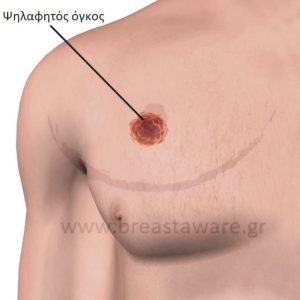
Breast Cancer in Men: What You Need to Know
The breast cancer in men is a rare but real form of malignancy, accounting for approximately 1% of all breast cancer diagnoses. The lifetime risk for a man is approximately 1 in 833 cases. The disease most often occurs between the ages of 60 and 70, and when diagnosed early, it is effectively treated.
Most Common Types
The vast majority of cases are ductal breast cancer , which starts from the milk-producing ducts. Rarely, the lobular, inflammatory cancer or Paget's disease of the nipple.
Symptoms to Watch For
Common signs that may lead to diagnosis include:
- Painless lump in the breast (50% of cases)
- Redness, thickening, or changes in skin color or texture
- Nipple retraction (pulling inward)
- Bloody or clear nipple discharge
- Rarely, cancer can affect both breasts (1% of cases)
Risk Factors
The male breast cancer is associated with a number of risk factors, such as:
- Advanced age
- Family history of breast cancer
- Obesity and hormonal imbalance (e.g. due to liver disease or hormone therapy for prostate cancer)
- History of testicular conditions (e.g., orchitis or orchiectomy)
- Mutations in BRCA1 and BRCA2 genes
- Klinefelter syndrome, which is associated with higher estrogen levels
How is it diagnosed?
Diagnosis involves:
- Clinical breast examination
- Imaging test (mammography, ultrasound, magnetic mammography)
- Breast biopsy by taking a sample of the suspected alteration
The final diagnosis is confirmed by histological examination of the sample, where the aggressiveness of the tumor and the presence of hormone-dependent receptors or HER2
To rule out metastases, CT scans and bone scans may be necessary.
Treatment
Treatment is multidisciplinary and includes:
- Surgery:
Mastectomy is the primary treatment, although lumpectomy may be an option in small tumors. Sentinel lymph node biopsy is performed to check for spread; if positive, axillary lymph node dissection may follow.
- Additional Treatments
Depending on the case, the following may be administered:
- Radiotherapy in the area of the mastectomy
- Endocrine Therapy (such as tamoxifen) in case of hormone-dependent tumor
- Chemotherapy, when there is a risk of micrometastases
- Immunotherapy in HER2-positive tumors with monoclonal antibodies (e.g. trastuzumab)
Is Genetic Testing Necessary?
Yes. About 5-10% of male breast cancers are hereditary. Genetic testing for BRCA1 and especially BRCA2 mutations is essential because:
- Each child of a carrier has a 50% chance of inheriting the mutation
- Male carriers of BRCA2 have a 6% risk of breast cancer
- Female carriers have up to an 80% risk
In addition, male carriers undergo higher risk for prostate cancer at a younger age.
In summary
Although rare, breast cancer in men is a significant diagnosis requiring awareness, timely symptom recognition, and specialized care. Prevention through knowledge and genetic testing can save lives—not only of patients but also of their relatives.
Learn more at www.breastaware.gr
At breastaware.gr, we provide scientifically accurate and accessible information on all breast conditions—for both men and women. Stay informed, take care of yourself and your loved ones responsibly.
Bibliography:
- Giordano SH, Cohen DS, Buzdar AU, Perkins G, Hortobagyi GN. Breast carcinoma in men: a population-based study. Cancer. 2021;127(6):948-955.
- Yadav S, Karam D, Bin Riaz I, et al. Male breast cancer in the United States: treatment patterns and prognostic factors in the National Cancer Database. Breast Cancer Res Treat. 2020;180(2):495-504.
- Sanguinetti A, Polistena A, Monacelli M, et al. Male breast cancer: Reappraisal of clinical and biological characteristics based on a 10-year experience in a high-volume institution. Int J Surg. 2022;97:106190.
- National Comprehensive Cancer Network (NCCN). Clinical Practice Guidelines in Oncology: Breast Cancer, Version 4.2025.
- Ruddy KJ, Winer EP. Male breast cancer: risk factors, biology, diagnosis, treatment, and survivorship. Ann Oncol. 2019;30(3):447–454.
- American Cancer Society (ACS). Breast Cancer in Men. [Updated 2023]
